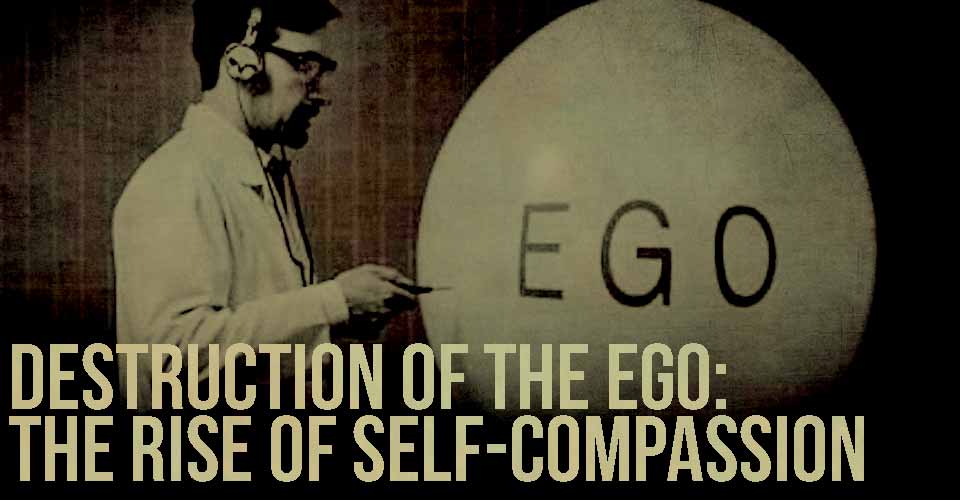
Historically, when it comes to self-development, one of the major themes has always been a cheerleader-like mentality of boosting one’s own self-esteem. When life gets tough, or we are faced with a challenge, we are told to boost ourselves up. “I’m good enough, I’m smart enough, and goshdarnit, people like me.” Yes, there is a function for self-esteem, and it is a necessary aspect of the human psyche. The problem many experts are realizing about the emphasis on self-esteem is two-fold: 1. Self-esteem is based on judgment, namely the judgment of one’s own worth. 2. Self-esteem is usually based on other people’s opinion of you. Self-esteem relies heavily on validation. Because of these fundamental flaws with the concept of self-esteem, there is a shift occurring in modern personal development.
The shift involves moving away from self-esteem and ego and toward self-compassion.
The current paradigm suggests that self-love or self-compassion is synonymous with narcissism and selfishness. But what scientists are finding is that self-compassion is actually better for people as a collective. When people have the ability to self-nurture, they are not only better equipped to handle life’s challenges, they become more empathetic by nature.
Self-compassion isn’t about building yourself up and overcoming your downfalls, it is about accepting yourself for who you are. It’s about accepting your faults, and understanding them. For some people, this sounds like making excuses for failures. It’s not. Self-nurturing is all about acceptance, not deflection. Instead of saying to yourself, “I am strong, I can do anything, I am bulletproof,” instead be realistic: “I have strengths and I have weaknesses. My weaknesses are… My strengths are…”
Kristin Neff, from the University of Texas, writes in her article Self-Compassion: An Alternative Conceptualization of a HealthyAttitudeToward Oneself, “Self-compassion, therefore, involves being touched by and open to one’s own suffering, not avoiding or disconnecting from it, generating the desire to alleviate one’s suffering and to heal oneself with kindness. Self-compassion also involves offering nonjudgmental understanding to one’s pain, inadequacies and failures, so that one’s experience is seen as part of the larger human experience.”
Self-compassion is a mindset. There isn’t one specific thing you can do, but first and foremost:
Be Honest With Yourself
We all have that friend that tells it to us exactly like it is, despite whatever impact that might have on our fragile egos. In fact, this is often something we look for in a friend. There is no reason that you can’t be that person for yourself. This isn’t a process of self-depreciation, it’s a process of self-evaluation. You have to be honest with yourself and how you feel, way before you can ever identify where those weaknesses that we all have really are. That is important, because until you know what those weaknesses are, you can never address them.
From that honesty, comes a major aspect of self-compassion:
Self-Compassion Becomes Self-Awareness
As you become more aware of yourself, your feelings, your struggles, and your strengths – an amazing thing happens: you become more aware of those same strengths, weaknesses, and struggles in others. If you walk around the world thinking that you are bullet-proof, you get this mentality that because other people aren’t – they are weaker. There is no such thing as bullet-proof in life, so by realizing that – it levels the playing field for how you see the people around you.
In the end, keep in mind:
There is Strength, Even in Your Weakness
Most importantly, by addressing your feelings instead of detaching from them, you will learn where you fit in best in any situation. This is a combination of the two items listed above. Example: in a business setting, if you know that having to be authoritative makes you uncomfortable, you’ll make a better team leader than a manager. My business partner and I call this the “good cop, bad cop” approach. I’m the carrot, he is the stick. I don’t beat myself up for being “too nice”, I put myself in a situation where that perceived weakness becomes my strength.


